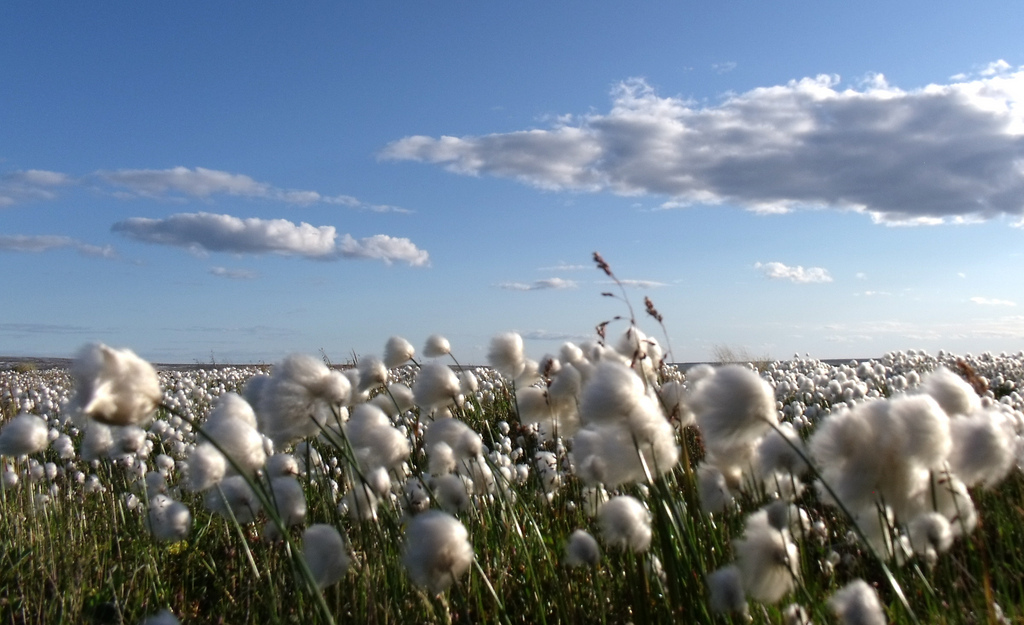Cotton can be a dirty industry. Cotton is grown in more than a hundred countries, each with their own unique biological challenges, and with the current 2 billion dollars of chemicals sprayed each year, cotton is responsible for 16% of the global insecticide use – more than any other single crop. The health effects to the environment and the people who work in these fields are enormous. A recent documentary, The Cotton Film: Dirty White Gold, takes a deeper look at the lives of Indian cotton farmers. “
At its height,” the film states, “up to 26 Indian cotton farmers a day drank pesticides to kill themselves out of the debt they got into in order to work.” This film gives us a glimpse into the negative effects from a billion dollar industry.

image: subarcticmike
Introduced for the first time in 1996, genetically modified cotton strands account for almost 50% of all conventional cotton produced in the world, and 88% of the US crop. These strands have been engineered with a bacterial toxin, (Bascillus thuringiensis, known as Bt). When an insect attacks the plant, this Bt toxin enters their system, poisoning and killing the insect.
California-grown Cleaner Cotton, parallels organic agriculture goals, and the fiber is grown with significantly less toxicity than conventional cotton. Also, thanks to certifications like GOTS, Global Organic Textile Standards, farms or companies can receive certification if their product is grown sustainably. “
Our mission is the
development, implementation, verification, protection
and
promotion
of the Global Organic Textile Standard (GOTS)”, claims the organizations mission, “and this standard stipulates requirements throughout the supply chain for both ecology and labor conditions in textile and apparel manufacturing using organically produced raw materials.”
As consumers, our truest vote is at the checkout counter. Be a loud advocate for ‘cleaner cotton’ and take time to look past the label.


Thanks so much for the post, Juliette!
If your readers want to view the trailer for the film and find out more about how they can help the project, they can head over here: http://www.sponsume.com/project/cotton-film-dirty-white-gold
and like the film on Facebook here: #/dirtywhitegoldfilm
Thanks so much everybody!
@Leah: Great to hear from you. Keep up the great work!
I agree with the ideas you’ve presented in your post.Thanks for the post.
Certainly will do! Thanks for reading and posting the great feedback.